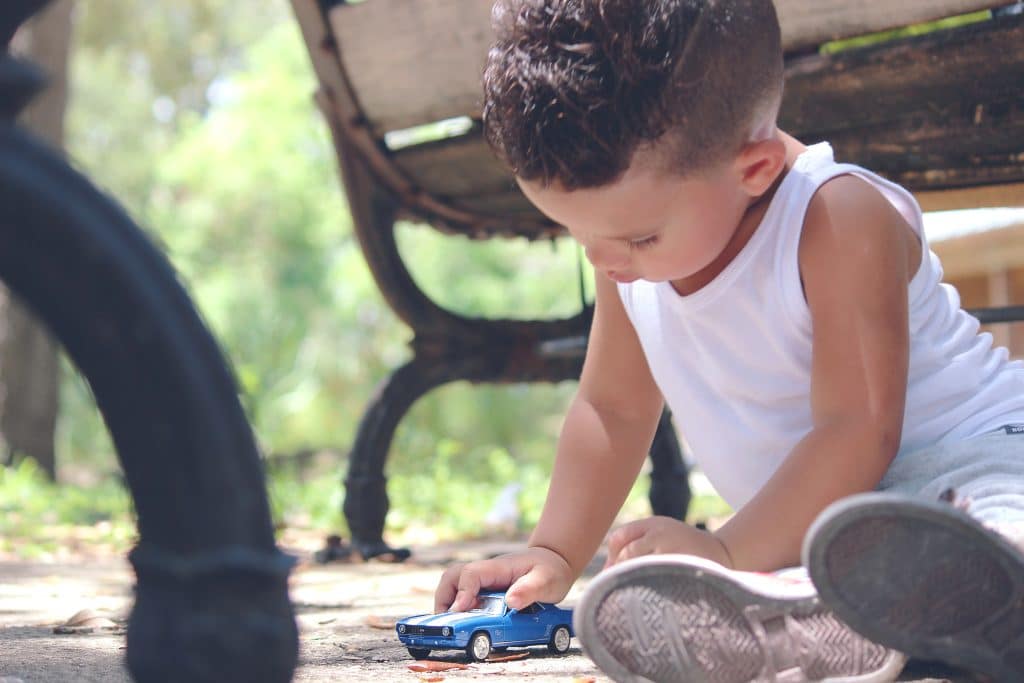As a parent, you want the best for your child. But sometimes, kids don’t reach milestones as quickly as others. Developmental delays are common in childhood, occurring in 10%–15% of preschool children. Understanding developmental delays in children can help you support your child’s growth. In this guide, we’ll talk about different types of developmental delays, their signs, and how you can help your neurodivergent kids thrive. So, let’s learn about developmental milestones and how to face the journey together with the help of tools like Goally.
Table of Contents
What Are Developmental Delays in Children?
Developmental delays happen when a child doesn’t reach specific milestones within the expected time frame. These delays can affect how a child thinks, moves, talks, and interacts with others. It’s important to remember that every child is unique, and some may take longer to reach certain milestones. However, if there is a delay, getting help early is important for providing the right support.
There are five main categories of developmental delays in children. Let’s take a closer look at every type and their common signs.
1. Thinking (Cognitive) Delays
Parents, when we talk about developmental delays in children, it’s crucial to understand the variety of types they come in. One that often goes unnoticed is thinking delays. Picture this: your child finds it challenging to grasp new skills or ideas, takes more time to learn, and faces challenges in problem-solving or logical thinking. That’s the realm of thinking delays.
This developmental delay can also show up as trouble with memory and attention or difficulty following simple instructions. I know it might sound daunting, but you’re not alone in this. And remember, every child is unique and progresses at their own pace. What’s important is that we keep an eye out for these signs and get the help our little ones might need.
- Difficulty following simple instructions
- Struggling with problem-solving or logical thinking
- Challenges with memory and attention
- Taking longer to learn new skills or ideas
2. Moving (Physical or Motor) Delays
Moving delays involve difficulties with movement and coordination. These delays can affect both big muscle movements (gross motor skills) and small muscle movements (fine motor skills). Signs of moving delays may include difficulty crawling, walking, or running, challenges with balance and coordination, problems with small tasks like grasping objects or using utensils, and taking longer to learn self-care skills like dressing or grooming.
- Difficulty crawling, walking, or running
- Challenges with balance and coordination
- Problems with small tasks, like grasping objects or using utensils
- Taking longer to learn self-care skills, like dressing or grooming

Read more: Goally for Physical Therapy
Using tools like Goally can help kids with motor delays practice their skills and build confidence in a fun and engaging way.
3. Feeling (Social and Emotional) Delays
Feeling delays impact a child’s ability to interact with others and express emotions properly. Kids with feeling delays may have trouble making friends, understanding social cues, and controlling their emotions. Signs of feeling delays include difficulty making friends or playing with others, challenges with understanding or expressing emotions, problems understanding how others feel, and behavioral issues like being aggressive or withdrawn.
- Difficulty making friends or playing with others
- Challenges with understanding or expressing emotions
- Problems understanding how others feel
- Behavioral issues, like being aggressive or withdrawn
Supporting your child’s social and emotional development is easier with tools like Goally, which can help them build routines and practice self-regulation skills.

4. Talking (Language and Communication) Delays
When discussing developmental delays in children, it’s vital to recognize the diverse types they encompass. Let’s focus today on a common one: talking delays. When a child has a talking delay, it might appear as if they have difficulty expressing their thoughts or ideas or struggle with pronunciation or speaking clearly. Does your child find reading or writing more challenging than their peers? Or do they show delayed speech or a limited vocabulary? These could all be signs of a talking delay.
This developmental delay can also surface as difficulty understanding spoken or written language. Seeing your child navigate these challenges can be tricky, but remember, you’re not alone. Being alert to these signs helps us take the necessary steps to support our kids in their unique growth journey.
- Delayed speech or limited vocabulary
- Difficulty understanding spoken or written language
- Challenges with expressing thoughts or ideas
- Problems with pronunciation or speaking clearly
Read More: Augmentative and Alternative Communication (AAC)

5. Everyday Tasks (Adaptive or Self-Help) Delays
Everyday task delays involve difficulties with daily tasks and self-care skills. Kids with these delays may struggle with tasks like feeding, dressing, or grooming themselves. Signs of everyday task delays include difficulty with self-care tasks like dressing or grooming, challenges with feeding or using utensils, problems with toilet training or personal hygiene, and struggles with organizing personal belongings or following routines.
- Difficulty with self-care tasks, like dressing or grooming
- Challenges with feeding or using utensils
- Problems with toilet training or personal hygiene
- Struggles with organizing personal belongings or following routines
Helping Your Child Grow
If you think your kid may have a developmental delay, it’s important to get professional help. Early help can make a big difference in your child’s progress and overall happiness.
Here are steps you can take:
- Talk to your child’s doctor or a specialist
- Get early help services, like speech therapy, occupational therapy, or physical therapy
- Create a supportive and loving environment at home
- Encourage your child’s strengths and interests
- Learn more and speak up for your child’s needs
Goally | Apps To Support Child Development
Looking for fun ways to help your child learn life skills? Try Goally! The Goally tablet comes with award-winning learning apps and video classes to help kids develop the skills they need to become independent with FUN & evidence-based practices.

Our apps teach executive function, language, emotional regulation, finger dexterity skills, and more.
As your child develops new skills, you can increase the difficulty level of the tasks in the app to challenge and motivate them even further. This helps your child grow and progress at their own pace, while also keeping them engaged and excited about their development.

Remember, you are your child’s biggest supporter. By understanding developmental delays in children and taking action, you can help your neurodivergent kids reach their full potential and lead happy, fulfilling lives. Tools like Goally can be a valuable resource in supporting your child’s development and building essential skills.
FAQs About Types of Developmental Delays in Children
What are developmental delays in children? Developmental delays in children refer to when kids take longer to reach specific growth milestones related to physical, cognitive, communicative, social, or emotional development.
What are some signs of developmental delays? Signs can vary widely but may include delayed speech, difficulty following instructions, challenges with problem-solving, trouble with memory, and difficulty expressing thoughts or ideas.
What are the types of developmental delay? There are five main types of developmental delay: cognitive, social-emotional, speech and language, fine motor, and gross motor delays.
How can visual schedules help children with developmental delays? Visual schedules can assist children with developmental delays by providing structure, predictability, and visual aid to understand and remember their routine or tasks.
What is the role of emotional regulation apps and rewards in supporting kids with developmental delays? Emotional regulation apps can help children recognize and manage their emotions. At the same time, rewards can motivate and reinforce positive behaviors, both crucial in supporting children with developmental delays.
This post was originally published on 04/25/2023. It was updated on 06/06/2023.

Goally
We help parents teach their kids life skills, like doing bedtime and morning independently. Backed by science, we incorporate evidence-based practices and expert-informed designs in all of our apps and content.





